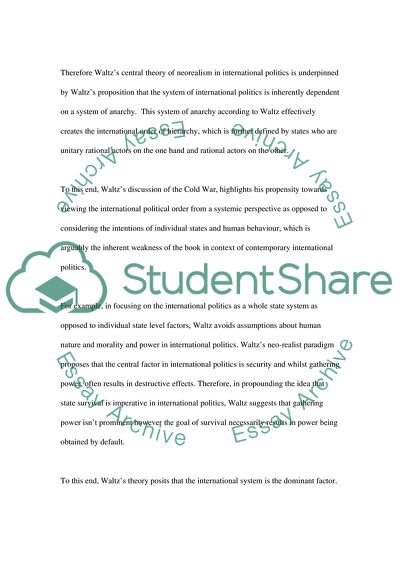Cite this document
(“Theory of International Politics by Kenneth N.WALTZ Essay”, n.d.)
Retrieved from https://studentshare.org/miscellaneous/1555231-theory-of-international-politics-by-kenneth-nwaltz
Retrieved from https://studentshare.org/miscellaneous/1555231-theory-of-international-politics-by-kenneth-nwaltz
(Theory of International Politics by Kenneth N.WALTZ Essay)
https://studentshare.org/miscellaneous/1555231-theory-of-international-politics-by-kenneth-nwaltz.
https://studentshare.org/miscellaneous/1555231-theory-of-international-politics-by-kenneth-nwaltz.
“Theory of International Politics by Kenneth N.WALTZ Essay”, n.d. https://studentshare.org/miscellaneous/1555231-theory-of-international-politics-by-kenneth-nwaltz.


